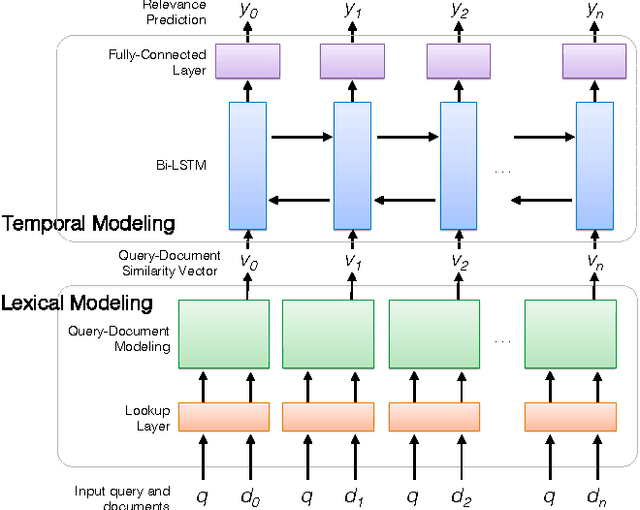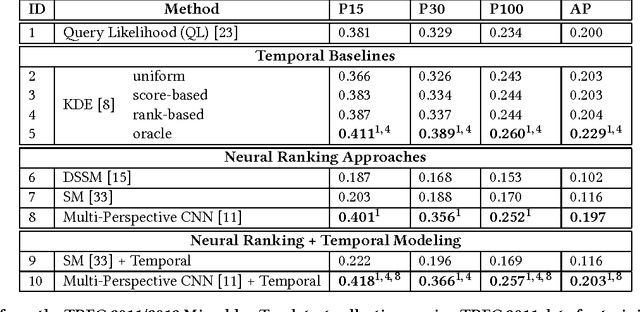Royal Sequiera
Exploring the Effectiveness of Convolutional Neural Networks for Answer Selection in End-to-End Question Answering
Jul 25, 2017



Abstract:Most work on natural language question answering today focuses on answer selection: given a candidate list of sentences, determine which contains the answer. Although important, answer selection is only one stage in a standard end-to-end question answering pipeline. This paper explores the effectiveness of convolutional neural networks (CNNs) for answer selection in an end-to-end context using the standard TrecQA dataset. We observe that a simple idf-weighted word overlap algorithm forms a very strong baseline, and that despite substantial efforts by the community in applying deep learning to tackle answer selection, the gains are modest at best on this dataset. Furthermore, it is unclear if a CNN is more effective than the baseline in an end-to-end context based on standard retrieval metrics. To further explore this finding, we conducted a manual user evaluation, which confirms that answers from the CNN are detectably better than those from idf-weighted word overlap. This result suggests that users are sensitive to relatively small differences in answer selection quality.
Integrating Lexical and Temporal Signals in Neural Ranking Models for Searching Social Media Streams
Jul 25, 2017

Abstract:Time is an important relevance signal when searching streams of social media posts. The distribution of document timestamps from the results of an initial query can be leveraged to infer the distribution of relevant documents, which can then be used to rerank the initial results. Previous experiments have shown that kernel density estimation is a simple yet effective implementation of this idea. This paper explores an alternative approach to mining temporal signals with recurrent neural networks. Our intuition is that neural networks provide a more expressive framework to capture the temporal coherence of neighboring documents in time. To our knowledge, we are the first to integrate lexical and temporal signals in an end-to-end neural network architecture, in which existing neural ranking models are used to generate query-document similarity vectors that feed into a bidirectional LSTM layer for temporal modeling. Our results are mixed: existing neural models for document ranking alone yield limited improvements over simple baselines, but the integration of lexical and temporal signals yield significant improvements over competitive temporal baselines.
 Add to Chrome
Add to Chrome Add to Firefox
Add to Firefox Add to Edge
Add to Edge